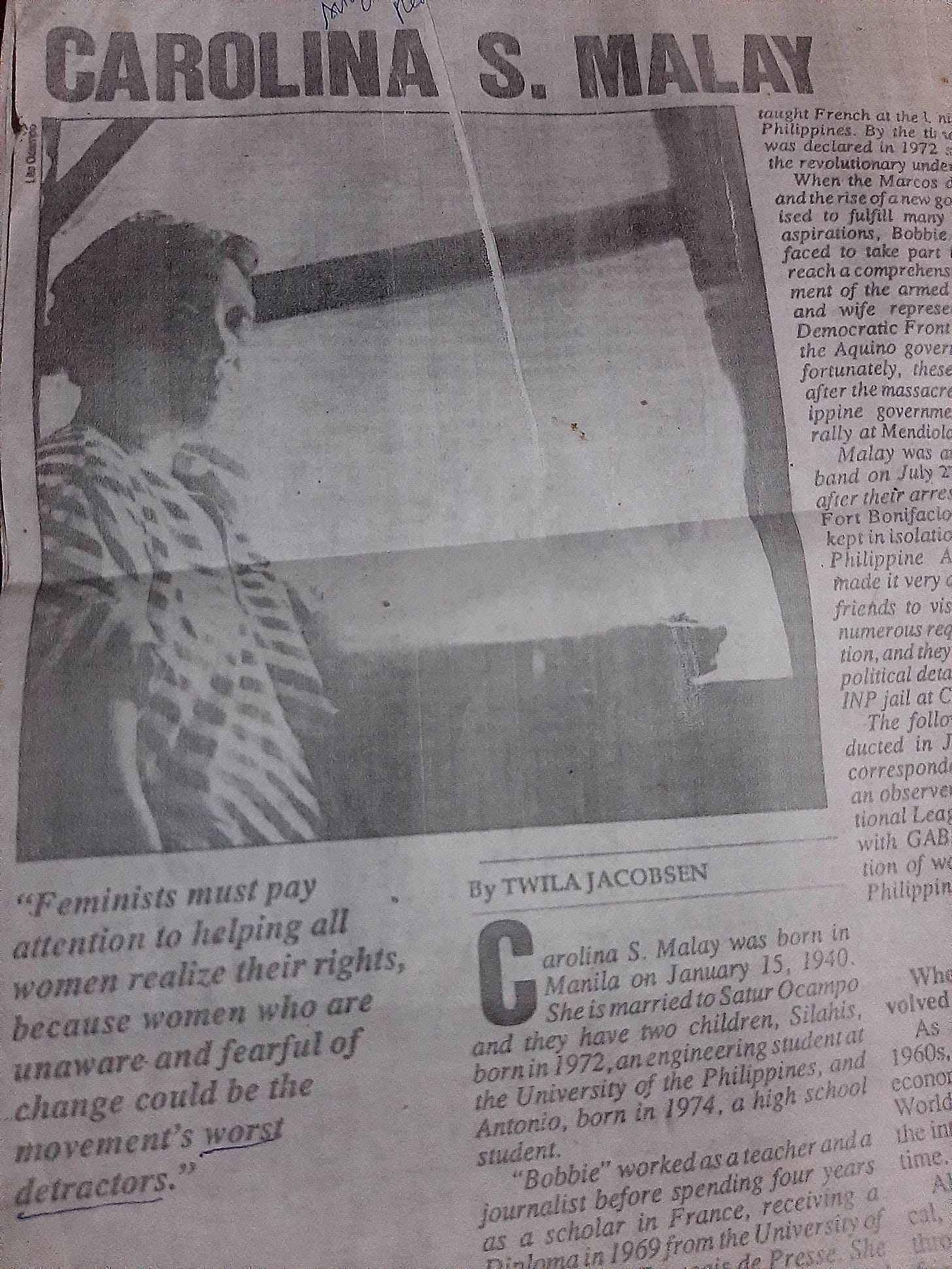It was actually a simple decision, made easy because I was unencumbered. There was neither husband nor child to worry about. I knew my family would respect my choice, and the vacuity of Manila’s social life had sunk in on me.
Below is a repost of an interview published in Midweek, dated September 19, 1990, a photocopy of which I have kept until now.
I got to know Bobbie Malay in the later part of the eighties when NDF personages surfaced to engage in peace talks with the Cory Aquino government. At the time, the only Filipino feminist writers I knew were Lualhati Baustista, Mila Aguilar, and the New York-based Ninotschka Rosca. Dolores Feria came a decade later, with the publication of her books, The Long Stag Party, Red Pencil Blue Pencil, and Barbed Wire Journal. The other Filipino feminists, including Aida Santos, Babeth Lolarga, Anna Leah Sarabia, Lilia Quindoza-Santiago, Ruth Elynia S. Mabanglo, Joi Barrios, I only got to read through the poems they wrote and articles about the feminist movement in the 1990s. Then when I got to Silliman, a poet activist from Cebu introduced me to Lina Sagaral Reyes and Fatima V. Lim. The rest—Marjorie Evasco, the fictionist Lakambini Sitoy, and the sterling poet Merlie Alunan who had by then returned to Tacloban—came after.
Bobbie Malay was up there in my galaxy not so much as a poet as for being an underground personality. That she went to Sorbonne and taught French before she took to the hills only added to the glamor—one magazine featuring her as a young woman dressed in a sixties cut, slim and chic and bare-legged. With the peace talks, Makibaka (Malayang Kilusan ng Bagong Kababaihan), the underground women'organization affiliated with the NDF, also surfaced. It was them really, and with one named Vicky or some such, that I rooted for. (I believe Midweek ran an interview with her too, though that, I failed to photocopy and to keep.) Maybe because she was so much younger and rifle-bearing, it was with her that I got a crush on. 😄🤗🤫 Bobbie was always billed alongside Satur, anyway, and sometimes pictured with one or both of their children.
My female friends' adoration went more to Satur who impressed us as a very humble person—a true revolutionary. How they cheered and screamed when, in one of the rallies, Satur, in midspeech, cried his heart out, Bobbie Malay, mahal na mahal kita!!! We knew he was separated from his first wife, whom he never caviled or slandered. In an interview, Satur even blamed himself, admitting that it was not his wife's fault but his, that's why his first marriage didn't work.
This interview was conducted at the time when Bobbie was in prison. She had since been released and aboveground. Satur, too, would later win a seat in Congress and was last seen battling Duterte's attempt to put him behind bars again.
Last I saw them together on social media was during the presidential campaign when Bobbie was quoted to have quipped they were considering red-tagging themselves.
Here's from the eighties. Here's to the future.
When did you first become involved in the popular struggle?
As a student in Paris during the 1960s, I became aware of political, economic, and social issues in the Third World and my own country, through the intellectual ferment going on at the time.
Although before this I was apolitical, I quickly came to understand—through books, the press, and my friends—that imperialist domination was what was keeping us poor and dependent. Thus the Vietnamese people’s war against US aggression drew a strong response from me. I was proud to belong to the fighting Third World of the Vietnamese, the Palestinians, and the Africans, the Cubans and other Latin Americans. I found books in the Sorbonne library which led me to realize that it was all up to us Filipinos to do something about our country. No, these were not Marxist-Leninist writings; at least one was counterrevolutionary, another was liberal-leaning, and a third was a simple Peace Corps type manual. what i learned from these were facts about our history, about underdevelopment, and mass organizing for popular resistance.
So I made up my mind to return after finishing my studies and join the revolution. It was actually a simple decision, made easy because I was unemcumbered. There was neither husband nor child to worry about. I knew my family would respect my choice, and the vacuity of Manila’s social life had sunk in on me. At first it was a matter of signing manifestos and passing the hat around, joining rallies and marches. I knew where it was leading to, and i wanted it. My life became more focused, more integrated.
What led you to decide to go underground?
The decision to go full-time had taken quite some time before I actually went underground. There was no question in my mind, from the start, that “to the hills” was where I was going.
As one of the few women reporters at the time, I was flattered to be “one of the boys” even as I enjoyed the attention and solicitude they gave me as a woman. I accepted, as a matter of course, that top jobs would be out of the question for me. Women’s lib was just starting then, but I didn’t feel it was for me. I was only thinking of myself.
In 1971, Marcos suspended the privilege of the writ of habeas corpus and there were mass arrests. Satur went underground, and since we were already a couple at the time, it was agreed that I would go too, and I did after a few months.
How has your own consciousness about women’s struggle developed?
Before joining the movement, my ideas about women’s liberation were quite shallow. As one of the few women reporters at the time, I was flattered to be “one of the boys” even as I enjoyed the attention and solicitude they gave me as a woman. I accepted, as a matter of course, that top jobs would be out of the question for me. Women’s lib was just starting then, but I didn’t feel it was for me. I was only thinking of myself.
Life in the underground turned the indifference around. Being in close contact with ordinary women, and sharing their same life conditions as a mother and wife myself—our daughter was three and a half and our son just a year old when it became too dangerous for them to be with me—my eyes were opened to the reality of unequal opportunities, feudal values and practices, and the heavier burden that poverty imposes upon women. I developed close friendships with more women than before.
Maybe it was better that my feminist consciousness emerged this way, through immersion in the life of the masses. Because it was part of my actual experience of the revolutionary struggle, I am convinced that women’s oppression in our country today is first of all a function of mass poverty and underdevelopment in general, and secondly of backward attitudes held by men and women alike. We must solve both these problems without one waiting for the other.
Has being married to Satur given you any additional advantages or disadvantages regarding your personal role within the popular struggle?
Now that you as, I think that being married to Satur has not been a decisive factor in determining what kind of work I have done, and how well I have performed my tasks. In the first place, we didn’t see each other even once in the more than nine years that he was in prison, and that’s half of our entire married life. That I chose to carry on underground instead of surfacing to take up the conventional role of a spouse, speaks for itself. I think it’s fair to say that as far as the movement is concerned, my merits and shortcomings have had to do only with myself.
I would note that it was I who had to make an adjustment to the fact that Satur is a public figure. Some of the limelight falls on me too, something I wouldn’t have volunteered for.
Over and above everything, I want it on record that I have been strengthened in my own work by the quality of our relationship. Satur is a man who does not feel demeaned by “woman’s work,” a strong and caring person, a good father.
It seems to me that the local media portray you more as “the wife” of a leader, rather than a leader in your own right. How does that make you feel, and how does it reflect in your work?
Feeling secure that I stand as a person and a revolutionary in my own right, and knowing moreover that my husband and our comrades and friends see it that way, I don’t feel I have to take pains to differentiate myself more aggressively in public at this time.
When media people interview us, most of the time, they ask Satur the “political” questions and they ask me to fill in the “lighter side.” Wouldn’t you wish for more imagination and less gender stereotyping?
However, I certainly don’t want to be confined to being a “human interest” angle. When media people interview us, most of the time, they ask Satur the “political” questions and they ask me to fill in the “lighter side.” Wouldn’t you wish for more imagination and less gender stereotyping?
Can you explain how the National Democratic Front sees the struggle of Philippine women within the popular struggle?
Women’s liberation is definitely an operative goal of the national democratic movement. The NDF program of action, in its most recent updating which was being circulated for comment as of the time of our arrest last year (July 27, 1989), spells out quite concretely what the movement intends to do about women’s liberation in the given Philippine conditions. This is a program that derives flesh and blood from the struggles, both practical and theoretical, and emotional, that have been launched by progressive and revolutionary Filipino women through the years. What’s more, it is a program that enjoys the support and commitment also of the men.
I can say without hesitation that we in the Philippines can be proud of what has been achieved in the sphere of women organizing. All of us certainly recognize the role and actual contribution of women in all aspects of the revolutionary struggle.
But that is not to say that what we have done is enough. Significant numbers of women are active participants and leaders, but this is not attributable to a consciously feminist perspective making a tangible impact upon the movement’s priorities and options. Feminism has been largely identified with the progressive middle class, and it still has to make its influence felt more strongly among the masses of the poor. You see, organizing among peasant or working class women has focused more on class issues, economic and political issues. It has tended not to be gender-related.
I do think that the entire revolutionary movement would stand to benefit greatly from an emphasis on feminist organizing and more attention to women’s issues as an integral part of trade-union or peasant organizing, and community organizing. Of course it wouldn’t be directed against men, but rather against structures, values, attitudes that fetter the development of women as individuals and as members of Philippine society. It should be a challenge to the unique energy and militancy of all feminist organizations to produce the many more activists and cadres who will do this work on a full-time basis. We must not rely on the underground organizations to produce all the results we want to see.

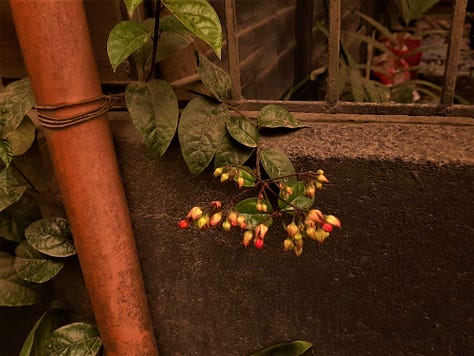

Feminism has been largely identified with the progressive middle class, and it still has to make its influence felt more strongly among the masses of the poor. You see, organizing among peasant or working class women has focused more on class issues, economic and political issues. It has tended not to be gender-related.
Are the problems of teenage mothers, abandonment, battered wives, rape, issues that the NDF addresses?
Family problems—wife beating, abandonment, adultery, etc.—are commonly addressed by revolutionary organizations in areas where their political and moral influence are acknowledged and sosught by the people. Since these organizations are led by local cadres, solutions are worked and enforced by the people themselves. As of now, everything is rather unstructured. Eventually there will have to be more uniform definition of offenses, procedures, and penalties. More importantly, Makibaka chapters need to be more active in leading their respective communities to advance and protect women’s rights.
I remember a young woman of the Cordilleras, strikingly beautiful like a statue of goddess. She had insisted on joining the New People’s Army, she told me, otherwise she would have had to marry a man chosen by her parents. Hopefully, that tradition should be on the way out, especially now that women and youths have become a part of the tribal council—an innovation introduced by the revolutionary movement in that particular part of the country.
Within the movement, is it usual to see women in the kitchen and the men around the table talking politics? And is this a problem for the overall movement to address or a separate issue for women?
It is not unusual in the movement to find women in the kitchen and men talking politics. On the other hand, it is not unusual either to find men in the kitchen and women talking politics.
What I am saying is that structurally women can and do break out of the kitchen and bedroom, and this is encouraged. There are enough women in leadership bodies to substantiate that. I get the impression that customary patterns are harder to break in the case of couples in the movement who maintain a “normal” life. In a milieu where inequality is the norm, even a politicized husband finds it onerous to be unorthodox within the marital relationship. I guess it’s easier in the underground because there is greater pressure in support of the wife.
Still, women in the movement have more obstacles to overcome than men. For one thing, men generally feel freer of family concerns and so they have more time available for other work. Child care, to my mind, is the most crucial area. It legitimately makes demands on a mother’s time for years on end, but ideally the responsibility should be equitably shared between both parents, and between them and society. We in the movement have not yet found a satisfactory solution to this problem. There is still too much sacrifice and pain because parents, especially mothers, are forced to choose between a normal family life and full-time revolutionary work.
How do the many different issues of women here in the Philippines—the peasant farmer, the factory worker, the urban poor, the tribal woman, the Muslim woman—connect within the overall struggle?
Let me give a personal point of view, inasmuch as I can’t presume to speak for everyone because of my limited involvement in the women’s movement.

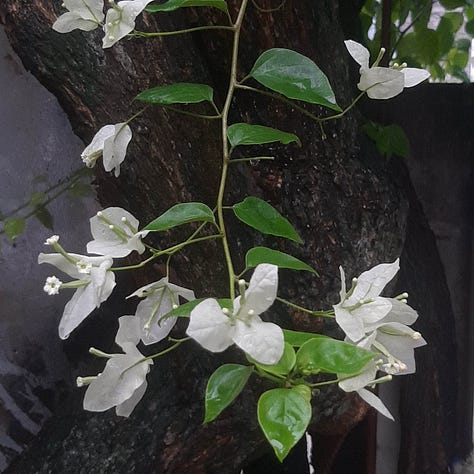

Many men are ready to accept women’s liberation, although they have to be shown, pressured, to practice it in their everyday lives. At the same time, feminists must also pay a lot of attention to helping all women realize their rights, because women who are unaware and fearful of change could be the movement’s worst detractors.
The struggle for genuine equality between men and women is an important part of the revolutionary struggle—subordinate but essential. It is not something to be postponed for a later stage, even as we recognize that the problem can be tackled in a really systematic and thoroughgoing way, only with the emergence of a more fully developed national economy and political democracy.
I believe that consciousness-raising by itself can achieve a lot even now. Many men are ready to accept women’s liberation, although they have to be shown, pressured, to practice it in their everyday lives. At the same time, feminists must also pay a lot of attention to helping all women realize their rights, because women who are unaware and fearful of change could be the movement’s worst detractors. We must also initiate activities that will help women to be independent and think better for themselves.
Given the differences in the issues addressed by women of the Philippines and women from the US, can there be solidarity among them? How can this solidarity be concretized into programs and action?
There are a multitude of issues that women in the Philippines and America can relate to in a mutually supportive way.
US military bases here threaten our integral security, abetting and supporting the Philippine government’s “total war” policy against the people. Prostitution and drug trafficking flourish around Clark Air Base and Subic Naval Base. US companies, avoiding payment of higher wages to American workers, make enormous profits from our cheap labor, much of which is women’s labor. Pesticides, herbicides and medical drugs that are banned in your country are practically forced upon us. Even high-pressure advertising pushes increased consumption of cigarettes and alcohol, especially by women. Our media have been away for decades with American cultural products that are biased against women, racial and ethnic minorities, revolution, and all progressive ideas.

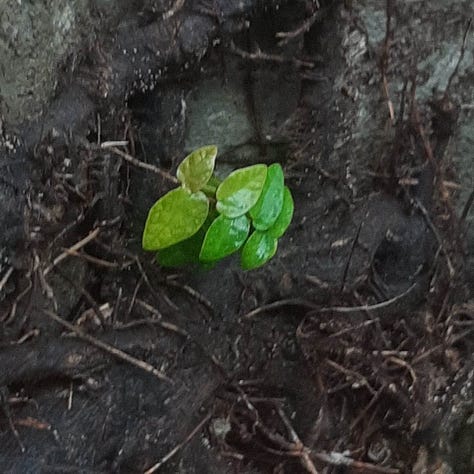
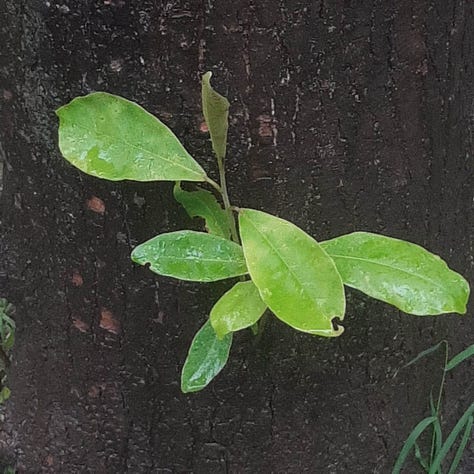
Pesticides, herbicides and medical drugs that are banned in your country are practically forced upon us. Even high-pressure advertising pushes increased consumption of cigarettes and alcohol, especially by women. Our media have been away for decades with American cultural products that are biased against women, racial and ethnic minorities, revolution, and all progressive ideas.
On a personal note, I would like to ask women’s groups in America and elsewhere to support the demand for my immediate release from Fort Bonifacio. In previous cases where couples have been arrested and detained together, the Philippine government has allowed the early release of the wife on humanitarian grounds. Our children are still of school age, and my parents, both in their mid-seventies, now need my care as their eldest and only daughter. Please help me to rejoin them soon.
What is your dream for your own daughter, and the future of young women in the Philippines?
My dream for my daughter Silahis is for her to have a life where her vital decisions—on education, work, marriage, family—not only would be taken freely and joyfully as a socially responsible, healthy person; but also as a member of a society where everyone enjoys the same freedom of choice from among a variety of options.
My daughter will be an adult pretty soon. I can reasonably expect that the fisrt part of my wish will be fulfilled. Unfortunately for the second part, the current state f Philippine society bars the attainment of equal opportunities for many. I regret that the labors of our generation have not sufficed as of now to bring about that much progress in our country, so that we may be able to say to our children, “Look, this is what we have won for you.”
But I am very sure the next generation will be able to achieve much more than we have. Looking at today’s kids fills me with happiness and hope. They are brighter, better equipped than we were. And they have a solid foundation to build on—the revolutionary people’s struggles that we have carried forward as best as we could, for their sake.





